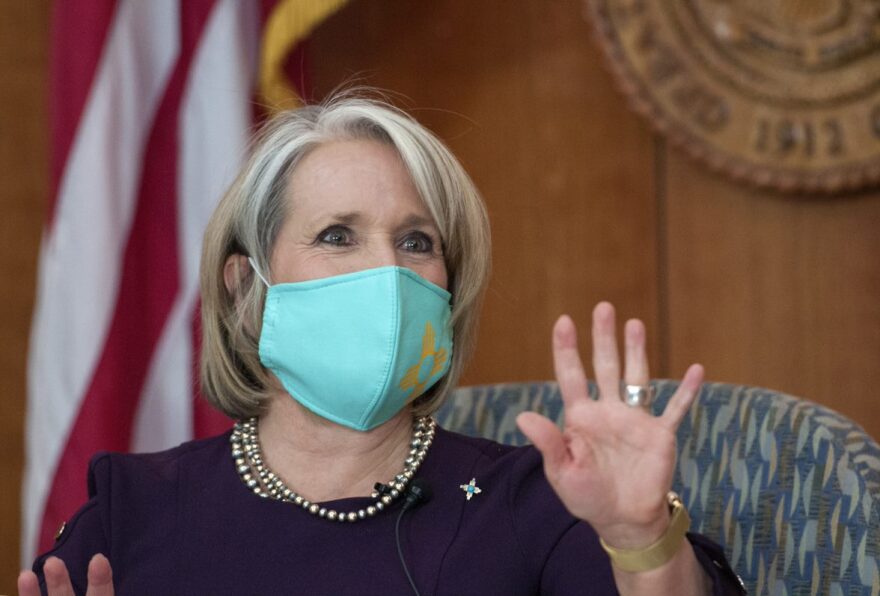Commentary: Governor Lujan-Grisham and Dr. David Scraase are navigating well among dangerous shoals labeled “Raging, Red-Alert, Hospital-Filling COVID-19 Spread,” “Financial Ruin,” “Public Emergency,” and “Individual Rights.” It’s a tough, complex piloting job. But I’m troubled by a few apparent missteps, and more troubled by getting stiffed when I ask about them.
Similar conduct in similar structures presents a similar danger and should be similarly treated. Say a building has 80 audience seats and a platform from which people present, preach, or lecture. If political meetings that size were allowed, at partial capacity, and masked, but religious services weren’t, we’d hear much shouting and suffer lawsuits alleging unfair discrimination.
That discrimination would be unfair. The reverse is unfair, too. How, I asked, is a small, independent live theater more dangerous than a church the same size? (A small movie theater seems even less dangerous.) Assuming an institution observes mask and distancing rules, how do these activities differ significantly as far as spreading the virus?
I sought some reasoned basis in science, or plain good sense, for this discrimination. (I get that it’s politically convenient.)
Just as our Constitution doesn’t permit unnecessary or discriminatory interference with exercise of religious faith, it also forbids establishment of religion. Arguably, the State’s discrimination against non-religious gatherings is unconstitutional. Supreme Court cases have recognized citizen’s rights not to believe in supreme beings.
Even assuming it’s Constitutional, it’s obviously unfair. Sure, some people of faith feel strongly about attending church; but many folk find powerful instruction and community in a good play well-performed or a thoughtful movie.
So why is an 80-seat church given a break and an 80-seat theater classed “a large entertainment venue?”
Nora Meyers Sackett, the Governor’s press person, responded to a question about the unfair categorization by sending me the categorization, and confirming that the State classed small theatres as large entertainment venues. Kind of like if I asked why a law forbade Ukrainians from owning dogs, and the reply was, “Yes, you’re a Ukrainian.” “Jeez, I know that, but why can’t I have a dog?” A follow-up email seeking some more meaningful dialogue went ignored. Other efforts through other officials have been equally fruitless.
This sort of arrogance is dangerous. Notably, the extraordinary health order, more than most laws, depends on voluntary compliance. On the public buying into it. Public respect for laws can vary in direct proportion to public perception that they’re fairly and thoughtfully enforced. That perception is undermined by seemingly unfair rules and by officials who make pronouncements but won’t tolerate questions. I’m particularly dismayed, because I take both the virus and democracy seriously. (Hence I made extra efforts to discuss this issue before writing about it.)
It’s also troubling that a small business might not have access to a simple way to resolve such issues. I know some folks oppose the whole effort to minimize spread, and think masks are pointless or horribly violative of their constitutional rights. Others challenge scientific observation for political gain. My theatrical friends and I believe in the science and generally approve the steps the State is taking. We just want small, local enterprises to be treated equally, or hear a rational explanation why they can’t be.
I know you’re busy, guys; but we can’t be the only folks who are on board but have serious questions. Ignore us, and you sacrifice a whole lot of credibility in the short run.


